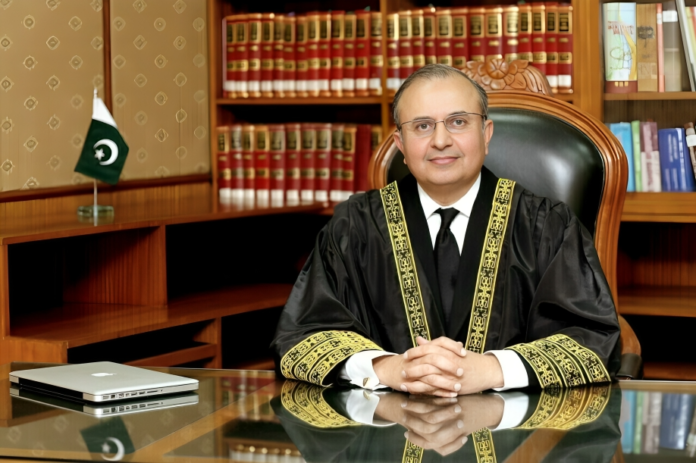Supreme Court’s Justice Syed Mansoor Ali Shah, has voiced strong objections to the recent amendments in the Practice and Procedure Ordinance, emphasizing serious concerns regarding both the content and the process of these changes. In a detailed three-page letter addressed to the reconstituted committee, Justice Mansoor Ali Shah elaborated on his reservations.
The PML-N led government has further empowered Chief Justice of Pakistan Qazi Faez Isa through amendments in the Practice and Procedure Ordinance, allowing him to form benches and assign high-profile cases by nominating judges of his choice. Following the promulgation of the ordinance, CJP Qazi Faez Isa swiftly reconstituted the committee, including Justice Aminuddin Khan, while ousting Justice Munib Akhtar. Justice Khan is the fifth most senior judge, whereas Justice Yahya Afridi, the fourth most senior judge, was excluded from this new committee.
Justice Mansoor Ali Shah expressed alarm at the rapid reconstitution of the committee, highlighting the lack of transparency regarding Justice Munib Akhtar’s removal. “No reasons were provided for the exclusion of Justice Munib Akhtar, who had consistently attended meetings and was available for this session,” he noted.
Critically, Justice Mansoor Ali Shah condemned the arbitrary selection of committee members, calling it “unfortunate cherry-picking” that undermines the democratic principles the Practice and Procedure Ordinance aims to uphold. He stressed the importance of collegial decision-making within the judiciary, asserting that concentrating significant powers in a single individual contradicts the ideals of democratic governance and judicial fairness.
Furthermore, Justice Mansoor Ali Shah questioned the necessity of the ordinance’s immediate implementation without parliamentary debate. He pointed out that the urgency for such a measure had not been adequately justified, stating, “The constitutional validity of the amendments in the Practice and Procedure Ordinance should be determined by the Full Court Bench, as the urgency for its promulgation is unsubstantiated.”
In his letter, Justice Mansoor Ali Shah called for a full court meeting to discuss the ordinance, highlighting the critical need for independence, transparency, and collegiality in judicial processes. He warned that any decisions made by the newly constituted committee could undermine the court’s credibility and violate the Full Court Bench’s prior rulings.
Concluding his letter, Justice Mansoor Ali Shah reaffirmed his commitment to judicial independence, stating, “Until the constitutional validity of the amendments made by the amendments in the Practice and Procedure Ordinance is established, I regretfully cannot participate in the committee meetings.”
Also Read: Supreme Court Powers Restored: 2024 Amendments Approved
This letter underscores significant internal tensions within Pakistan’s judiciary, with Justice Mansoor Ali Shah’s pointed criticisms raising vital questions about the balance of power in the country’s highest court. His insistence on upholding principles of transparency and collegiality reflects the ongoing struggle to maintain judicial independence amid political and administrative pressures.
Also Read: Supreme Court Restores NAB Law Amendments


